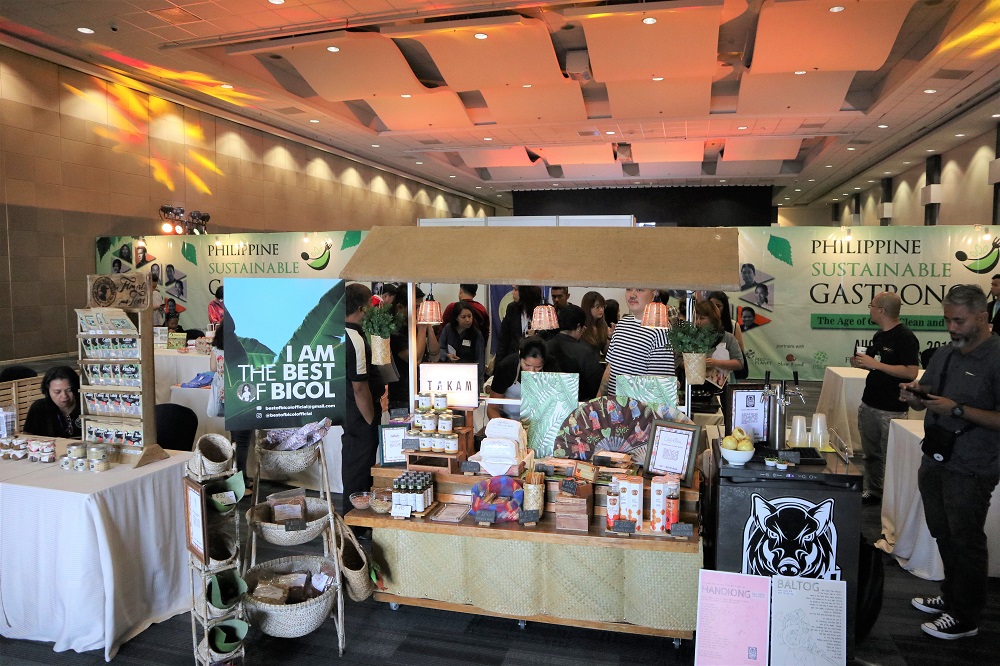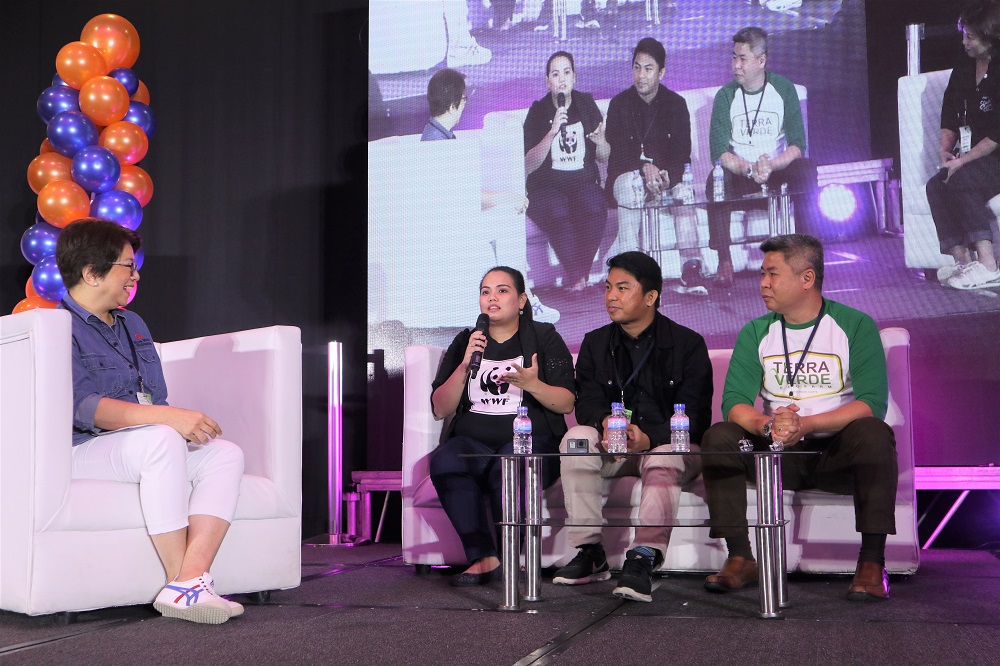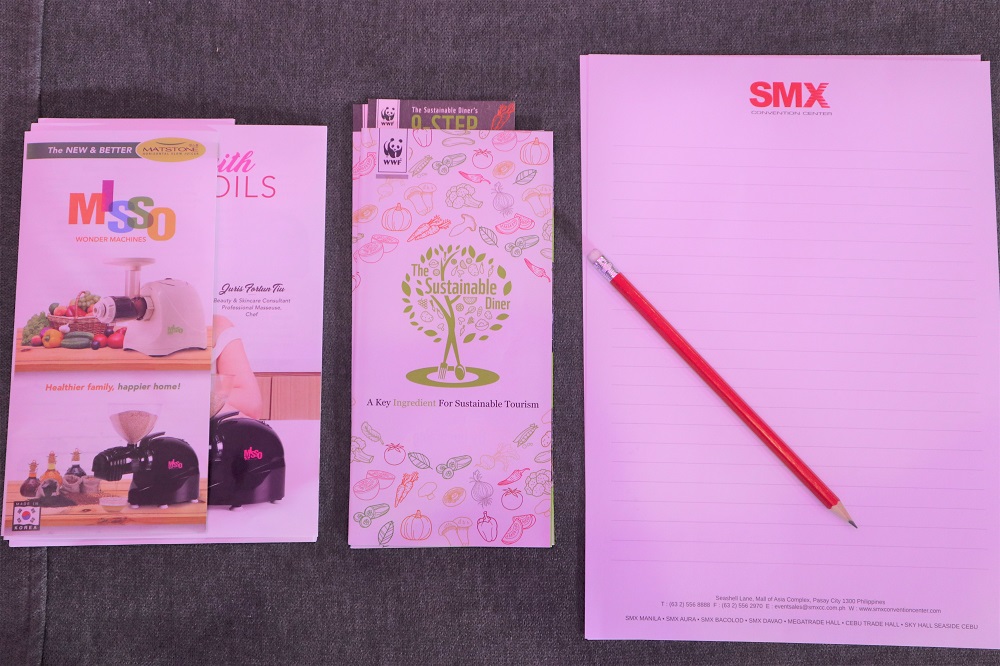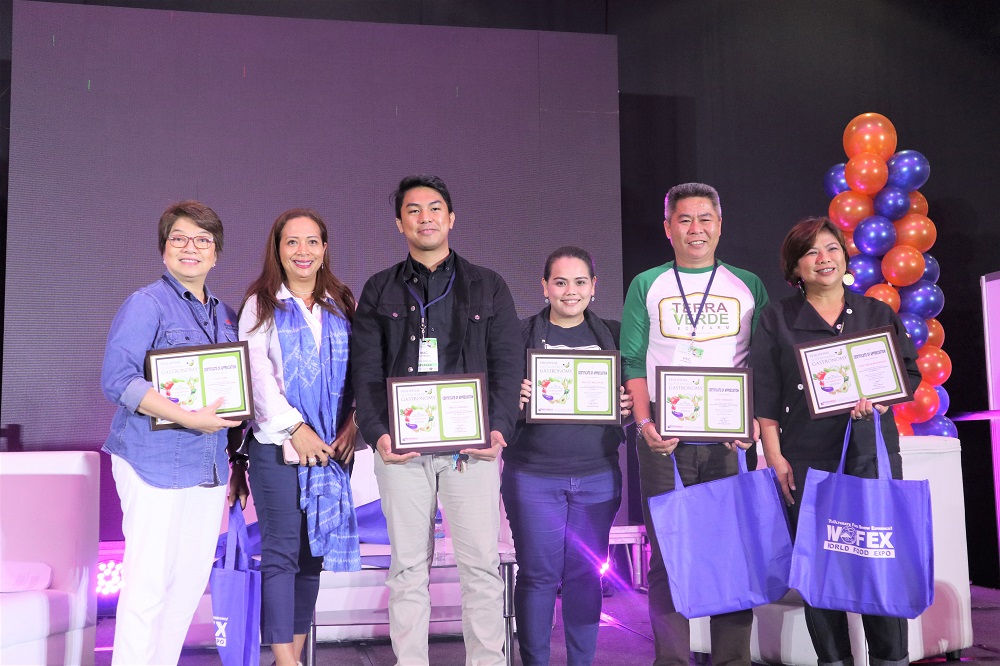WOFEX 2018 - Sustainable Dining as a Solution to Reducing Food Waste
August 2018

Local products coming from different regions of the Philippines displayed at the Philippine Sustainable Gastronomy trade area. © Gabriel Villalon / WWF-Philippines
“Actually, we are producing food enough to feed the whole global population but sadly, we are still losing a third of what we produce.”
Food is an integral part of human life, and in the process of producing and consuming food for an arguably overpopulated planet, food is also contributing to the problem of climate change. From field to fork, current food systems are contributing to the global greenhouse emission count. But ironically, current food systems are also suffering from the extreme effects of climate change. Drought, desertification, floods, sea-level rise, and ocean pollution are putting our food at risk all over the world. In order to solve these problems, we need to work together to find a solution - a delicious one - to save both our food and our planet. We need to start thinking about sustainable gastronomy.
Last August 2, 2018, the first ever run of the Philippine Sustainable Gastronomy (PSG) congress was launched at the World Food Expo (WOFEX) 2018. Held at the SMX Convention Center, the congress was comprised of different panel discussions that focuses on the importance of food and our dining choices, as change agents when it comes to the issues of sustainability and climate change adaptation. The Philippine Sustainable Gastronomy Congress aims to play a major role in achieving sustainable development goals by promoting agricultural development, food security, nutrition, sustainable food production, and the conservation of biodiversity. On August 3, 2018, World Wide Fund for Nature (WWF) Philippines’ The Sustainable Diner: A Key Ingredient for Sustainable Tourism participated as part of Waste Not, Want Not: Reducing the Food Waste Footprint, PSG’s panel on food waste management which was designed to understand where and how food waste comes about, and what to do in order to lessen our personal and collective food waste. Moderated by Pacita “Chit” Juan of Slow Food Manila, the panel’s speakers included Mac Florendo of Food Rescue ASEAN, Eric Atanacio of Terra Verde Ecofarms, Chef Waya Wijangco of Gourmet Gypsy Art Cafe, and Melody Melo-Rijk of WWF-Philippines.

Melody Melo-Rijk discussing The Sustainable Diner project, how it helps the local food service industry reduce their food waste, and how Filipino diners can be a part of the solution. © Gabriel Villalon / WWF-Philippines
As part of the food waste panel, Melo-Rijk, WWF-Philippines’ Project Manager for Sustainable Consumption and Production, shared about The Sustainable Diner project and how reducing food waste is one of the project’s key priorities for the local food service industry. The food service industry accounts for a substantial share of local consumption and production as dining out is fast becoming a part of the average Filipino’s daily habit. In fact, spending on restaurants and hotels is the second highest in terms of consumption expenditure growth, which indicates a growing culture of out-of-home consumption.
This is why WWF-Philippines has deemed the local food service industry ripe for a much-needed transition to sustainable operations. “We decided to focus on the food service industry so that we can help them integrate sustainability practices into their business models. We are also working with Filipino consumers to increase their awareness on sustainable dining so that eventually, they can show improved behavioral changes leaning towards support for sustainability. We also want to influence the government policies that we do have on food waste, on a national scale.” says Melo-Rijk.
The dining choices of Filipino consumers are vital to the local food service industry’s shift to sustainable operations, but the challenge lies with the consumers’ minimal understanding of the term “sustainability”, which affects how they perceive the whole concept of sustainable dining. “How do we define sustainable dining? How can we contextualize it? Because sustainability is a heavy word. And for a common consumer, when you say sustainability, some would define it in terms of business longevity, as in the business is sustainable because it’s been around for a long time,” says Melo-Rijk. “But it’s not our meaning of sustainability. Sustainability means producing more with less so that the future generations can still enjoy these resources.”

The Sustainable Diner project’s brochure, as well as its 9-Step Restaurant Guide bookmark, were given to the program attendees of the Philippine Sustainable Gastronomy congress. © Gabriel Villalon / WWF-Philippines
How can consumers then know if a restaurant is sustainable? “If the restaurant uses local, certified ingredients, they are practicing sustainability. If they are minimizing the use of single-use plastics or minimizing the use of packaging materials that are harmful to the environment, they are sustainable restaurants,” says Melo-Rijk. “If they are also reducing their food waste, pre-service and post-service, and are managing their resources efficiently, then they can be considered sustainable. So all of these things should go hand in hand. For us consumers, we should always be mindful of ordering only what we can finish as a general rule whenever we are dining out.”

The moderator, Chit Juan of Slow Food Manila, and Jennifer Viloria of IISLA Ventures, with the panelists - Mac Florendo of Food Rescue ASEAN, Melody Melo-Rijk of WWF-Philippines, Eric Atanacio of Terra Verde Ecofarms, and Chef Waya Wijangco of Gourmet Gypsy Art Cafe.
© Gabriel Villalon / WWF-Philippines
Through its maiden run this year, the Philippine Sustainable Gastronomy congress wishes to be a game changer when it comes to sustainability in the gastronomy sphere. In two days, it managed to spark innovative and mindful conversations among different stakeholders and hopefully, as a nation, we are able to soon find solutions to our food and climate change problem.
PSG is organized by PEPTarsus, with its partners: Slow Food Manila, Inclusive Investment in Sustainable Livelihood & Aspirations (IISLA), and WorldChefs’ Feed The Planet. The Sustainable Diner project is honored to be a part of this exciting congress and we believe that together, it is possible to promote sustainable dining here in the Philippines.
The Sustainable Diner project, under WWF-Philippines’ Sustainable Consumption and Production, is part of the International Climate Initiative (IKI). The Federal Ministry for the Environment, Nature Conservation, and Nuclear Safety (BMU) supports this initiative on the basis of a decision adopted by the German Bundestag.
